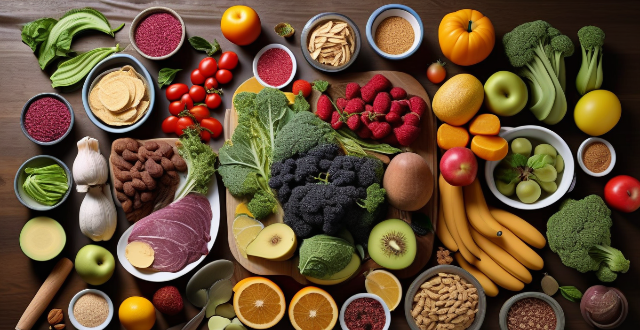Ensuring your breakfast is packed with essential vitamins and minerals requires incorporating a variety of foods, including whole grains, fruits, vegetables, and proteins. Opt for fortified foods like cereals and plant milks to boost nutritional value. Include a protein source, whether animal or plant-based, and consider what you drink, such as juices and milk. If needed, supplementation can help fill nutrient gaps under professional guidance. Planning ahead through meal prep and weekly menu planning can also ensure a balanced breakfast.

How Can I Make Sure My Breakfast Is Providing Enough Vitamins and Minerals?
Ensuring your breakfast is packed with essential vitamins and minerals is a crucial step towards maintaining a healthy diet. Here's how you can make it happen:
Incorporate a Variety of Foods
To get a wide spectrum of nutrients, include different types of foods in your breakfast:
- Whole Grains: Oatmeal, whole grain bread, or cereal are rich in B vitamins and fiber.
- Fruits: Berries, bananas, oranges, or apples provide vitamin C, potassium, and antioxidants.
- Vegetables: Tomatoes, spinach, or avocados offer vitamin K, iron, and folate.
- Proteins: Eggs, yogurt, nuts, or seeds are great sources of vitamin D, calcium, and omega-3 fatty acids.
Opt for Fortified Foods
Some foods are fortified with extra vitamins and minerals to boost their nutritional value:
- Cereals: Many breakfast cereals are fortified with vitamins like B complex and vitamin D.
- Plant Milks: Almond, soy, and other plant-based milks often have added calcium, vitamin D, and B12.
Include a Protein Source
Protein not only helps you feel full but also carries vital nutrients:
- Animal Protein: Eggs and lean meats contain B vitamins, iron, and vitamin B12.
- Plant Protein: Nuts, seeds, and legumes offer magnesium, selenium, and zinc.
Drink Up
What you drink can also contribute to your daily intake of vitamins and minerals:
- Juices: Citrus juices are high in vitamin C, while vegetable juices can provide vitamin A and potassium.
- Milk: A glass of milk is an excellent source of calcium and vitamin D.
Consider Supplementation
If achieving the recommended intake through food alone is challenging, consider supplementation under the guidance of a healthcare professional:
- Multivitamins: Can help fill any nutrient gaps in your diet.
- Specific Nutrients: Such as vitamin D or omega-3 supplements if your diet lacks these.
Plan Ahead
Being prepared can make a significant difference in ensuring a balanced meal:
- Meal Prep: Prepare components of your breakfast ahead of time to avoid rushed, nutrient-poor choices.
- Weekly Menu: Plan your breakfasts for the week to include a variety of nutrient-dense options.
Remember, a well-rounded breakfast should aim to give you a mix of carbohydrates, proteins, fats, vitamins, and minerals to fuel your day. By following these strategies, you can be sure that your breakfast is setting you up for success nutritionally.